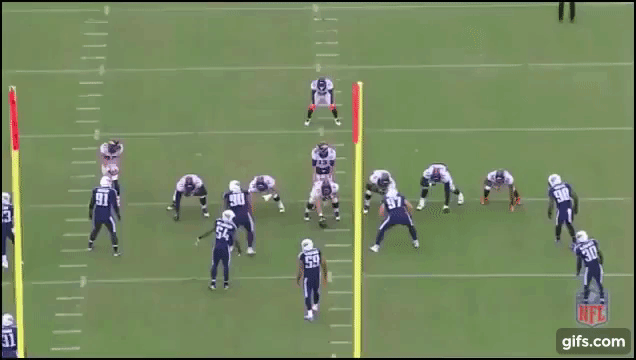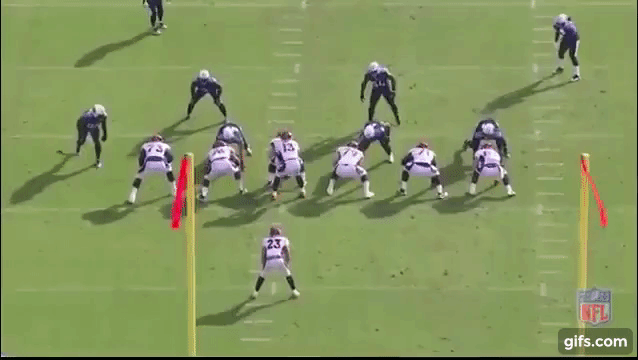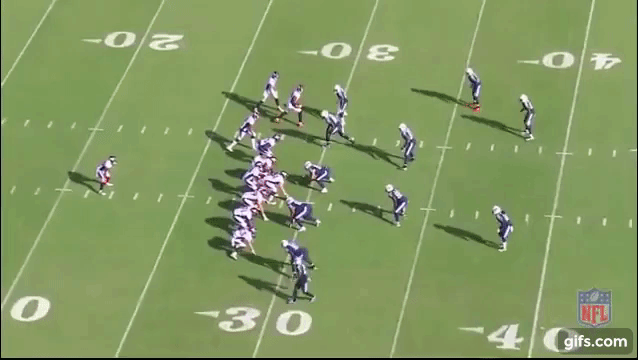© 2025 ALLCITY Network Inc.
All rights reserved.

In his last two starts, Trevor Siemian has stepped up in a big way for the Denver Broncos passing game, suddenly giving the attack some ability to move the chains through the air. However, the issues for the running game have only increased, reaching the ultimate low point this past Sunday against the Tennessee Titans (9 carries for 18 yards.)
Considering the importance of the ground game to Gary Kubiak’s offense and the inexperience behind center, the Broncos are lucky to have eight wins with the issues they’ve had so far.
While the issues have existed for a while dating back to before Kubiak was hired as coach, the running game and the play from the offensive line hasn’t shown anywhere close to the desired improvements. Though there are other issues that have brought on the Broncos struggles, none are greater than the issues running the ball.
With the playoff push in full force and things in need of fixing, we dug deep got into the film to find some answers as to why the Broncos can’t run the ball a lick.
Offensive line struggles
The issues up front offensively for the Broncos are multi-layered. The lack of balance doesn’t help. Simply put, a 9-52 run to pass ratio isn’t going to cut it, and as Kubiak says part of that can be fixed by simply running the ball more.
But while we featured the return of the Kubiak run game after the performance in Week 1, the team just hasn’t played the same way, with the level of play falling off each and every week. Up front, the line seems slow-footed at times, lacking the united movement that a great zone-blocking team requires. Even more troublesome is that the guys look to be slow when processing things mentally, missing extra rushers or simple double team blocks.
One 3rd-and-1 in the fourth quarter particularly stood out; with the game on the line and less than seven minutes left, the Broncos were driving with the ball in the red zone. After a second-down completion to Emmanuel Sanders to the sideline, the offense only had one yard to go. Get that yard, and everything is possible. Instead, Max Garcia is unable to create push on DaQuan Jones, guiding him in the backfield getting off the line a step slow. Garcia pushes him towards the center, where Matt Paradis doesn’t block effectively and misses a blitzing defensive back as well.
If one block is missed a first down is still possible, with both blocks missed the entire play breaks down, resulting in a tackle for a loss and the Broncos having to settle for a field goal. Denver fans have become far too accustomed to seeing their o-line get out muscled on crucial short down,s this might have been the most costly yet.
In a game where even your most reliable linemen—Paradis—is making mistakes, you know that everyone is to blame, no one is absolved. This group has shown they can maul if given the chance. They can get downhill and create push, but the lateral mobility hasn’t always been there or at least at the level required for a zone-blocking scheme, another issue.
Paradis and Garcia were far from the only culprits as Donald Stephenson allowed penetration on the right side on multiple broken runs and Michael Schofield was slow on a pull block in a separate instance. The offensive line has had its struggles all year on the run, but this past Sunday’s 18-yard performance is rock bottom.
What’s worse? These issues aren’t happening with loaded boxes or teams committing eight defenders to the run, not anymore at least. With Siemian in the game, teams respect the Denver passing game, but the O-line isn’t making them pay. One blown block, one bad penalty, one missed block, it’s a combination of sloppy mistakes and bad awareness, just not executing on a consistent basis.
Vision and production from the backs
The line is far from the only culprit here; the running game has been deeply disappointing in part due to the underwhelming performances of the team’s backs. Obviously, without C.J. Anderson the personnel and depth have been affected, but rookie Devontae Booker has disappointed thus far. Yes, he’s only a rookie and shouldn’t have all this pressure on him but this is also the opportunity of a lifetime, and he’s not making the best of it.
Booker hasn’t looked very elusive sure and hasn’t forced many missed tackles, but the greater issue in studying tape stems from his vision. He’s not seeing cut back lanes when they’re there, and he’s choosing to cutback runs when he should avoid doing so. He seems to be in his head, to have hit a bit of a wall and he’s not fully processing the speed of the game. That’s understandable for a first-year player, and those improvements should come with time, but in a final stretch in which the Broncos need him more than ever, the former Ute needs to step up.
New addition Justin Forsett brings some needed explosives, was seeing the cutback lanes and showing nice vision. It all served as an instant reminder that he’s been in Kubiak’s offense much longer than his rookie teammate.
Forsett’s big issue was his costly fumble, and it should be noted that in the few touches he did have he didn’t force any missed tackles. As a change of pace back who knows the offense and can hurt opposing defenses when there’s an opening, he’ll do just fine.
These backs will need more than nine carries to get going and finding ways to get them into space could help to get them going. More outside runs and diverse play designs have helped at times this season, but ultimately the play from the RB’s needs to improve.
Struggles on third and other missed opportunities
The Broncos had three separate opportunities to convert 3rd-and-1 and failed last Sunday—the most costly of all is mentioned above.
The other 3rd-and-1 came on a play action designed to the flats, on the Broncos very first drive, and the play was immediately broken up and turned into a sack. While the design is to the tight end going in motion, the play is broken off by a blitzer that quickly beats Booker in pass protection. Screens, play action bootlegs, and quick hitting high-percentage pass plays that can aid in replacing the run game aren’t working but could certainly help in diversifying the playbook to take pressure off more conventional runs.
These problems keep popping up and even when play designs are more creative, like the above-mentioned bootleg, execution fails Denver. Another creative play call that went nowhere was an off balance set in which the receiver’s movement suggest a reverse, but Forsett runs it off tackle. That play went for a big gain but was called back on a holding by Paradis. Forsett had another positive run early on getting the Broncos very first down but then fumbled it.
So while the outing was abysmal for the ground attack, plays were there to be made. Denver simply didn’t capitalize. With the final stretch at the door and massive games ahead, the Broncos can no longer afford these costly mistakes in the run. It’s clear the run game isn’t their strong point, but with a better than expected passing game the Broncos don’t need Kubiak’s patented run production, just solid balance to keep defenses honest and allow the attack to take off.
Comments
Share your thoughts
Join the conversation







